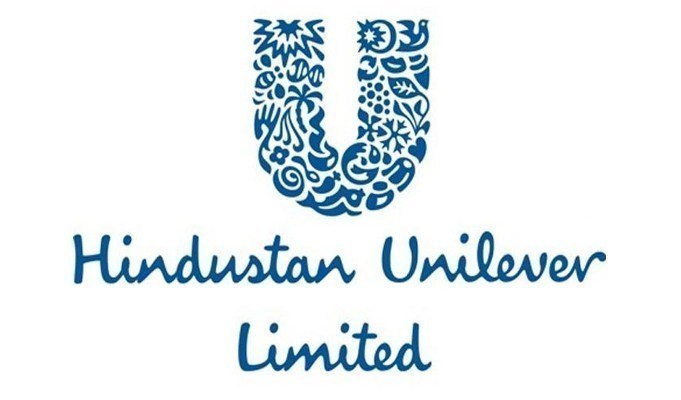Hindustan Unilever Limited (HUL), one of India’s largest fast-moving consumer goods (FMCG) companies, has announced a significant restructuring move that involves the demerger of its ice cream business. This decision, made by the company’s Board of Directors, represents a strategic shift that has been under evaluation by a committee of Independent Directors for some time. The ice cream business, though contributing a relatively small portion—around 3%—of HUL’s total turnover, is seen as a high-potential segment. However, it requires considerable investments and a specialized operational model, which differ from the rest of HUL’s business operations. The demerger, according to the company, will allow both HUL and the ice cream business to thrive by focusing on their respective strengths and unlocking value for shareholders.
HUL, a subsidiary of the global giant Unilever, has long been known for its diverse product portfolio, spanning beauty, personal care, home care, foods, and refreshments. The company’s ice cream segment, which includes popular brands such as Kwality Wall’s, has been a key player in the Indian market. Despite its relatively small share of the company’s total revenue, the ice cream segment is a complex and growing business. It operates in a highly competitive space, which has been seeing rapid growth driven by increasing consumer demand, innovation in flavors, and expansion of distribution channels.
The demerger of the ice cream business is a strategic decision aimed at allowing both HUL and the separated entity to pursue growth more efficiently. The ice cream category has its own unique requirements, including specialized cold chain infrastructure, distinct distribution networks, and a need for focused marketing efforts that differ from HUL’s other business areas. These specialized needs often limit potential synergies with HUL’s other operations. By separating the ice cream business, HUL will allow it to operate with greater autonomy, focus, and flexibility, which could lead to more rapid innovation and market penetration.
The restructuring move comes at a time when HUL is increasingly shifting its focus toward high-growth sectors like beauty, personal care, health, and wellness. These categories are expected to be the future growth engines for the company, especially as consumer preferences evolve towards more premium and health-oriented products. The company has been investing heavily in these areas, both in terms of product development and marketing, to strengthen its position in these segments. By demerging the ice cream business, HUL can concentrate its resources on these core categories, driving stronger growth and improving overall profitability.
HUL’s decision to separate its ice cream business also reflects the unique operational challenges associated with this segment. The ice cream business relies heavily on cold chain logistics, a specialized infrastructure that ensures products are stored and transported at the right temperatures. This requires significant investments in refrigeration units, transport vehicles, and distribution channels, all of which differ from the needs of HUL’s other product categories. Additionally, the ice cream business has a distinct seasonal demand pattern, with sales peaking during the summer months and dipping in colder seasons. This creates operational and marketing challenges that are different from those faced by HUL’s other business units, which tend to have more consistent year-round demand.
Another factor influencing HUL’s decision is the ownership of trademarks and technical know-how by its parent company, Unilever. Unilever owns the intellectual property rights associated with the ice cream brands and products, and HUL has been operating the business under license. With the demerger, HUL will need to develop its own local capabilities to continue running the business effectively. This could involve negotiating new licensing agreements with Unilever or investing in building its own trademarks and technical expertise. By spinning off the ice cream business into a separate entity, HUL will ensure that it has the operational independence needed to make these investments and decisions without being constrained by its broader corporate structure.
The decision to demerge the ice cream business is also in line with global trends in the FMCG sector, where companies are increasingly focusing on their core strengths and divesting non-core assets. This trend has been driven by the need for greater agility in responding to changing consumer preferences, as well as the desire to streamline operations and improve profitability. In HUL’s case, the demerger of the ice cream business will allow the company to sharpen its focus on its core areas of strength, while giving the ice cream business the freedom to pursue growth opportunities more aggressively.
While the ice cream business currently contributes only a small percentage of HUL’s overall revenue, it is a fast-growing segment with significant potential. The Indian ice cream market has been expanding rapidly in recent years, driven by rising disposable incomes, urbanization, and the increasing popularity of indulgence categories among consumers. There has also been a shift towards premium products and innovative flavors, which has created opportunities for brands to differentiate themselves in a competitive market. By becoming an independent entity, the ice cream business will be able to tap into these trends more effectively, developing new products and expanding its distribution network without being limited by the broader strategic goals of HUL.
For HUL, the demerger represents an opportunity to streamline its operations and focus on its most profitable and high-potential categories. The company has been increasingly concentrating on areas like beauty, health, and wellness, which are seen as future growth drivers. These categories not only offer higher margins but also align with global consumer trends towards more premium and personalized products. By reallocating resources and attention to these segments, HUL will be better positioned to capitalize on emerging opportunities and maintain its leadership in the Indian FMCG market.
The Board of Directors of HUL is expected to finalize the details of the demerger by the end of the year. The process will be guided by the recommendations of the Independent Committee that was formed to evaluate the future of the ice cream business. The committee’s evaluation has been instrumental in shaping the decision to separate the business, ensuring that the move aligns with the long-term interests of both HUL and its shareholders. While the exact mode of separation has not yet been determined, options could include a demerger, sale, or strategic partnership, depending on what the Board deems most beneficial.
In conclusion, the demerger of HUL’s ice cream business marks a significant step in the company’s broader strategy of focusing on its core strengths and maximizing shareholder value. By separating the ice cream division, HUL will be able to concentrate more on its high-growth categories like beauty, personal care, and wellness, while the ice cream business will have the independence and flexibility to pursue its own growth strategies. This move is expected to benefit both HUL and the ice cream business, allowing each to operate with greater focus and efficiency in their respective markets. As the details of the demerger are finalized, both investors and industry observers will be watching closely to see how this strategic move unfolds and what it means for the future of HUL and its ice cream business.


